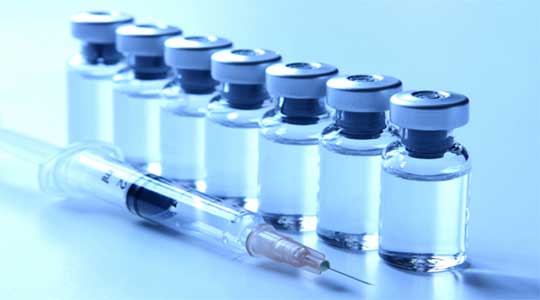
The Pfizer/BioNTech coronavirus vaccine has been approved in the UK, paving the way for mass vaccination.
The UK becomes the first country in the world to approve a coronavirus vaccine.
Britain’s medicines regulator, the MHRA, says the vaccine, which offers up to 95% protection against Covid-19 illness, is safe to be rolled out.
The first 800,000 doses will be available in the UK from next week, Health Secretary Matt Hancock said.
People should wait to be contacted by the NHS, he added.
Pfizer Vaccine Appears to Protect 94% of Adults over 65 Years Old
Moderna Vaccine Shows Nearly 95% Protection Against Covid-19
Coronavirus: Pfizer Vaccine Offers 90% Protection
Elderly people in care homes and care home staff are top of the priority list, followed by over-80s and health and care staff.
However, because of the limited stocks and need to store at -70C, the very first vaccinations are likely to take place at hospitals so care home residents may not be immunized until later.
The Pfizer/BioNTech product is the fastest vaccine to go from concept to reality, taking only 10 months to follow the same steps that normally span 10 years.
The UK has already ordered 40 million doses of the free jab – enough to vaccinate 20 million people.
The doses will be rolled out as quickly as they can be made by Pfizer in Belgium, Matt Hancock said, with the first load next week and then “several millions” throughout December.
UK’s PM Boris Johnson said: “It’s the protection of vaccines that will ultimately allow us to reclaim our lives and get the economy moving again.”
Pfizer/BioNTech vaccine will be non-compulsory and there will be three ways of vaccinating people across the UK:
- Hospitals
- Vaccination centers
- In the community, with GPs and pharmacists.
Around 50 hospitals are on stand-by and vaccination centers – in venues such as conference centers or sports stadiums – are being set up now.
Because the initial doses are being delivered to hospitals, which already have the facilities to store the vaccine at -70C, the very first vaccinations are likely to take place at hospital hubs – for care home staff, NHS staff and patients – so none of the vaccine is wasted.
It is thought the vaccination network could start delivering more than one million doses a week once enough doses are available.
